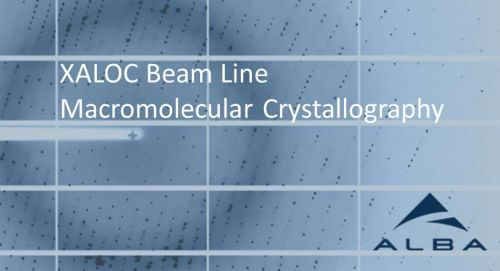
20/07/2018
Molecular mimicry does not mislead ALBA!
Molecular mimicry does not mislead ALBA!
Many intracellular pathogens use molecular mimicry to ensure their survival. A part of a protein of the pathogen resembles another protein totally different from the host and many intracellular microorganisms use this capability to interfere in cellular processes that enable their survival and replication.
Researchers from the CIC bioGUNE in the Basque Country in collaboration with other groups from the United States have carried out experiments at the XALOC beamline of the ALBA Synchrotron and I04 beamline of Diamond Light Source (UK). The results enabled scientists to solve the structure of RavN, a protein of the Legionella pneumophila bacteria that uses this molecular mimicry to trick the infected cell.
Researchers have showed that the structure of RavN has a certain structural similarity with E3 eukaryotes (a set of enzymes) despite its different composition. This result allows making progress in the understanding of the molecular mechanisms active in Legionnaires' disease that can transform into pneumonia and kill infected people.
Article: Yi-Han Lin et al. in PLOS Pathogen
Researchers from the CIC bioGUNE in the Basque Country in collaboration with other groups from the United States have carried out experiments at the XALOC beamline of the ALBA Synchrotron and I04 beamline of Diamond Light Source (UK). The results enabled scientists to solve the structure of RavN, a protein of the Legionella pneumophila bacteria that uses this molecular mimicry to trick the infected cell.
Researchers have showed that the structure of RavN has a certain structural similarity with E3 eukaryotes (a set of enzymes) despite its different composition. This result allows making progress in the understanding of the molecular mechanisms active in Legionnaires' disease that can transform into pneumonia and kill infected people.
Article: Yi-Han Lin et al. in PLOS Pathogen
More news
23/06/2016
Distributed Polygeneration: Barcelona Synchrotron Park Shares Its Experience
17/06/2016
Barcelona Synchrotron Park Sponsors the Fifth Ideas Generation Program
10/06/2016
The Nanoworld Is Designed and Observed In and Nearby Barcelona Synchrotron Park
02/06/2016
Mediterranean Corridor: an important infrastructure for Barcelona Synchrotron Park
26/05/2016
UAB University Makes Distance Wireless Charging a Reality
19/05/2016
HP Enters the 3D Printing Market









